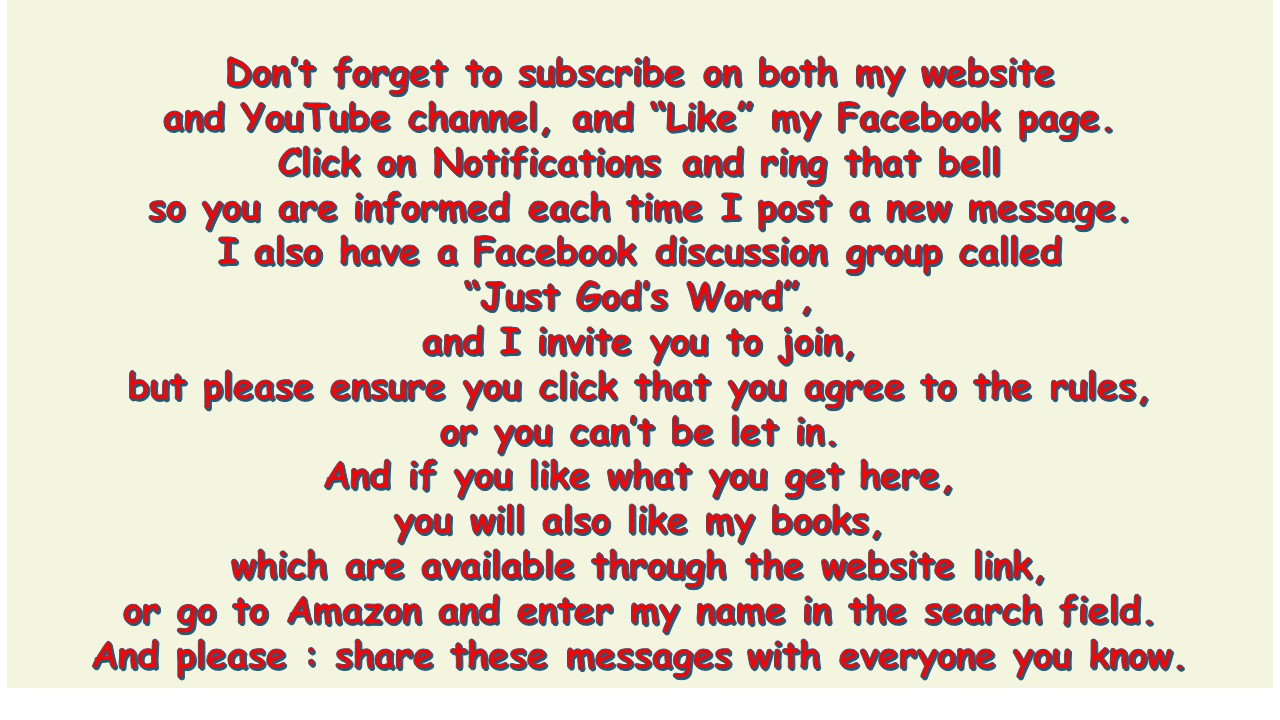Of course, Yeshua (Jesus) is called the Passover Lamb, but that isn’t really the full description what his sacrifice provided. In fact, his sacrifice not only served to provide the means for us to be forgiven of our sins, but consequently, also allows us to commune with the Almighty.
If you would prefer to watch a video, click on this link: Watch the video.

Did you know that for Passover, the sacrifice doesn’t have to be a lamb? In Exodus 12:3, God tells Moses that on the 10th day of the month, each family is to choose a lamb or a kid from the flock. Now, we normally associate the Passover sacrifice as being a lamb, but here- clearly- it could also be a goat, although we normally associate a goat sacrifice for Yom Kippur, even though in Leviticus 23, we are only told to bring an offering by fire. However, before that (Leviticus 16) God tells us about how to perform a sin sacrifice, where he then outlines the two goats to be used. But these are to be goats- no option. And after Passover, when the festival of First Fruits comes, there we sacrifice a lamb- again, no option.
There was a general system for offerings: first, you would bring the offering for your sin, which cleansed you of that stain of guilt, then you would offer a wholly burnt offering, which represented your recommitment to obedience to God. Lastly, there would be a Friendship, or Thanksgiving offering, which is the one (and ONLY one) where you would share of the meat of that offering, eating it right there in a holy place. That represented your ability to commune with God, now that you are free of sin. The three phases of the sacrificial system are: forgiveness, commitment, and then communion.
Yeshua’s sacrifice provided for both forgiveness and communion, fulfilling both the Passover sacrifice and the Yom Kippur sacrifice, all at one time. With the destruction of the temple in 73 A.D., soon after Yeshua’s job as Messiah on earth was completed, the only means of receiving forgiveness and communing with God was through accepting Yeshua as your Messiah.
In the next life, after the Apocalypse is over and the new heaven and new earth are here, I believe that the sacrificial system will begin again, only this time we will not need to sacrifice for forgiveness. The sacrifices we will be making will be for cleansing, friendship, and the completion of vows (as defined in Leviticus).
If you are wondering to yourself, “How can it be possible for Yeshua to be both a Yom Kippur sacrifice and a Passover sacrifice at the same time?”, my answer is…. hey, I don’t know! Look, he’s the Messiah, sent by God, and God can do whatever the heck he wants to, in whichever order he wants to do it. All I know is that Yeshua’s sacrifice makes it possible to be forgiven of sin, which then makes it possible to commune with God (remember- God can’t abide sin in his presence), and you know what else? That is all I need to know.
Thank you, again, for being here and enjoy this Festival of Unleavened Bread. One of my favorite snacks during this week is to spread softened butter on a piece of matza (if you don’t soften it first, the matza will probably break) then lightly sprinkle salt on it. It is so simple, and it is soooo good!
Thats’ it for today, so l’hitraot and Baruch HaShem!
